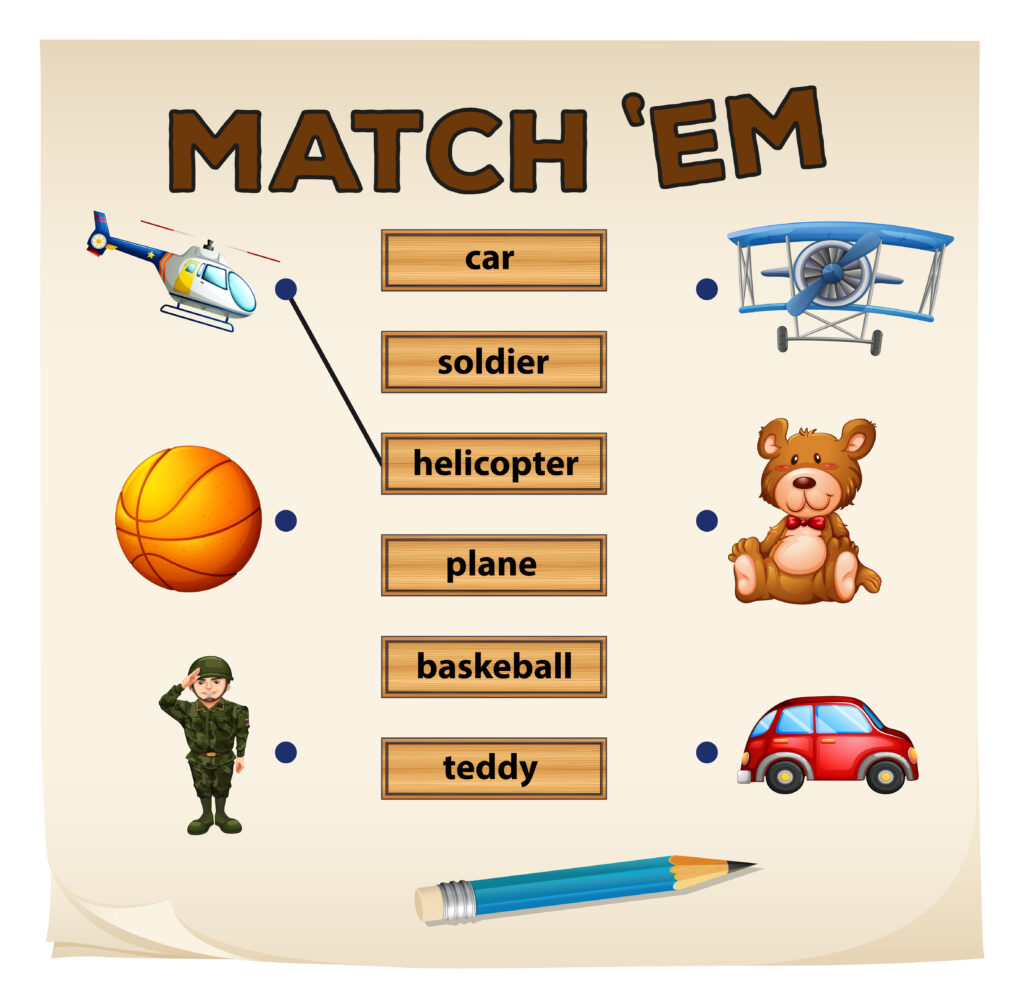
Learning new words is like adding to your writing closet. Your writing turns out to be a great deal more interesting and connecting with when you have more choices available. These vocabulary exercises work for all ages, K-12, and furnish messes with an assortment of learning options to assist them with building their own statement bank. We provide you Fun Activities that Grow your Vocabulary.
I’m sharing 10 idea for instructing vocabulary. You will most likely be unable to utilize every one of them, however I want to believe that you can discover a few thoughts that will work well for you!
I’ve shared books about vocabulary guidance, as well as the hypothesis and methods. This post is significantly more practical. All of us are about ideas today! here we describe 10 Fun Activities that Grow your Vocabulary.
1.Read Classic Works of Literature

I realize this sounds exhausting, yet you’ll track down a plenty of new words to learn. I keep a scratch pad close by as I read a work of art. At the point when I find a word I’m curious about, I record it on paper. In a large portion of these books, I can fill a couple of pages with words I don’t utilize frequently.
Classics were written in a period where shoptalk was disapproved of. Appropriate word use was utilized. That permits perusers an opportunity to be presented to a more extensive vocabulary. It isn’t so much that the words aren’t utilized any longer. I’ve found them in a large number of the books composed throughout the course of recent years, however they are not utilized so a lot. This implies less people understand what they mean.
If you have a tablet, you could have an incredible instrument not too far off to extend your vocabulary. As I read, I put my finger on words I’m curious about. My Kindle pulls up the importance of the word for me. I’ve learned many new words doing that.
When you are picking an exemplary work to peruse, attempt to pick one that has crested your interest. I wouldn’t suggest Moby Dick except if you have been longing for quite a long time to understand it. Find one you have seen the film of and loved it. That will assist you with understanding the story as you come. For that you will lerrn from game based learning .
2.Semantic Maps
In this activity, the teacher picks a word and shows it for the class on a whiteboard, and so on.

students read the word and afterward consider words that strike a mind when they see that word (this is marvelous on the grounds that it activities earlier learning).
A list is made of each of the words that ring a bell, and afterward those words are classified.
This should be possible all in all class or in small groups.
students then, at that point, make a “map” utilizing a realistic coordinator and examine it. Extra or substitute classes can be suggested.
As students read through the text, they can add related words to the guide.
3. Expression of the Week

They say that reiteration is the way to genuine learning, and this showing procedure can keep kids drew in the whole week. To develop children’s vocabulary utilizing the expression of the week, picking a word with diversity is significant. You can have children structure new sentences with the word during the entire week to support more comprehension.
This exercise can help kids learn with learning the various settings in which vocab words fit in with help of classmates and different members. At the point when the children return home, they can request that guardians or sibling give them new purposes of the words they can share in class. This is best activity from this Fun Activities that Grow your Vocabulary.
4.Making choice
students show how they might interpret vocabulary by saying the word when it applies, or staying quiet when it doesn’t.
For example: “Say brilliant if any of these things could make somebody look brilliant.”
-Winning 1,000,000 dollars.
-Earning a gold medal.
-Strolling to the mail center.
-cleaning up your room.
-Having an image you painted hung in the school library.
(This idea is from the book Bringing Words to Life, suggested in the books area.)
This is one of the key strategies teachers need in presenting new vocabulary. Therefore, I’ve written broadly and given twelve models from differents texts for Kinder through twelfth level on VocabularyLuau.
5. Taboo Words
Taboo Words helps students practice with synonymss and descriptions. Separate the class into equal parts and have the two teams recline on across from sides of the room, confronting one another. Each team will pick an individual to sit before their group, confronting them in a “tough situation.” You will remain behind the students and hold up a piece of paper with a word on it. The students in the tough situations can not see these papers.
Teams have three minutes (or any measure of time you need to set) to get their tough situation part to say the word on the paper. The catch is, they can’t say the word for any reason.
6. Word Pairs
Give students words two by two and have them assuming the words are something similar, opposite, go together, or are irrelevant.
This strategy is marvelous for building critical thinking abilities alongside the vocabulary.
7. 10 Objects
Test your students memories and vocabulary simultaneously with this fun game. All you want is a clear work area and 10 normal things from around the classroom. You might get things from your backpack or purse.
Arrange the items on the work area and let students assemble around to check them out. Cover everything with a sheet (or something almost identical) following one moment and send everybody back to their seats. Every students should work out however many things as they can recall on a piece of paper, all in English.
When everybody is finished, compose a rundown of the things on the blackboard and permit students to self-right. On the other hand, you can get down on the items and give a point for every one that is correctly written.
8.Word Hunting
This is a fun game and can be played in various varieties. This can be played with little ones using simple words that you need to introduce with them.
The most effective method to Play game:
Make a square network with hidden words to a great extent. Give a rundown of words to be looked from the lattice. introduce a book or point with be read and give kids composed material (i.e., papers, magazines, word references, books, as well as news stories on the Internet). Have them find a bunch of words which end in a particular pattern.
Have children utilize any story book like for eg: The Cat in the Hat by Dr. Seuss and have them find every one of the words that end with a particular vowel design word.
From a science book have children discover a few creature living spaces from the picked text.
9. Vocabulary Relay
Print out words on one bunch of cards (duplicate this set a couple of times) and definitions, settings, or sentences in which they could be utilized (fill-in-the-clear) on one more set (only one set).
Tangle up the words in a heap in the floor, and mix up the definitions, setting, and sentences to keep with you. Break students into groups of five-ish.
Get down on the definition/setting/sentence and give students some think time (8 – 10 seconds) to discuss what word it very well may be.
After the conversation time, call out “Word!” One part from each group rushes to the middle and attempts to track down the word in the heap.
I like having different arrangements of the words so beyond what one group can get it.
Check to ensure they’re right, and after examine it momentarily before the following round.
10. What Am I Thinking Of?
Assuming that you’ve at any point played 20 Questions, you definitely know how this game goes. To make it a little more easy on your students, nonetheless, you will incorporate a few visual pieces of information. All are 10 Fun Activities that Grow your Vocabulary.
Match students up and have them think an article. Every student should write 5-10 words describing the item on a piece of paper. when you call time, the students trade papers and attempt to sort out what the other person described. The primary group to have the two words guessed accurately wins.

